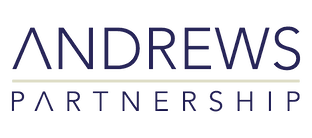INSIGHTS
The changing role of the Diversity, Equity and Inclusion Leader in Asia
As we collectively continue to face economic uncertainty and challenging times, CEOs resiliently juggle the fine balance between short-term economic restraint and long-term business commitments resulting in priorities being pulled in different directions.
Following the ‘mad scramble’ from international companies to beef up strategic hires in Diversity, Equity and Inclusion (DE&I) in 2020/21, which resulted in, according to a recent McKinsey report, 53% of Fortune 500 companies have a Chief Diversity Officer (CDO), with over 60 appointing their first-ever diversity leader. In the last 6 months, there has been a pronounced step back in the States, seeing big names stepping down from key roles at companies like Disney, Netflix and Warner Bros Discovery, suggesting that those roles across the pond have been “buffeted by economic conditions” as cited by the FT, in an article published this summer.
However, the growth and focus in Asia has been slower, but markedly more stable, with global action leading the way for APAC uptake. The conversation here has gained more traction as the business case grows for companies to demonstrate and communicate actionable commitment to DE&I. In addition to tighter scrutiny from an expectant audience, new legislation across different jurisdictions in APAC will help to drive further developments and keep the lens firmly on formalising commitments.
Andrews Partnership sat down with 10 APAC Leaders in DE&I to understand how the role of the CDO or Regional Diversity Lead has changed in the last 12 months, what the unique challenges are in APAC and what key skills CDO leaders need to possess in their toolbox going forward.
What are the challenges facing the role today in APAC?
“One of the key frustrations leading APAC as a region, is not being understood by global. There could be a tendency to treat us like a country with a broad-brush approach, rather than understand the complexity of the region; the cultural, societal and legal differences that we need to work within.” Said one Head of DE&I working for a global MNC.
Asia is not a ‘one size fits all’ approach, whether we as a function are referring to LGBTQIA+ rights, gender equity in the workplace, financial inclusion, or themes like mental health and mental wellbeing.
“We must, in fact, work harder to align with global strategy, whilst bringing our local expertise, and be able to push back on initiatives that are not pertinent to certain countries and cultures.” said the Head of DE&I at a large Asset Management Firm.
We, like our global counterparts, are crying out for resources. Six out of the ten leaders we spoke to said they have dedicated DE&I budgets and over the last 12 months they have significantly increased, but they felt there was still a long way to go. For the others, they cited no resources and no headcount as their primary barrier, with expectations on them to “deliver miracles” and “deliver them fast”.
“Companies have to now do better, and I think working with search firms like Andrews Partnership will help them find the right profile of candidate to lead the functions” a leading Head of HR wrote to us.
Where is talent coming from, and what are the key skills for success for the future of this function
As a specialist search firm focused on Corporate Affairs, Communications, Sustainability & ESG in APAC, we have seen the evolution of DE&I hiring strategies from being a mere tick-box exercise to a key driver of business success. In Asia, the DE&I talent pool has significantly grown over the last 5 years. That being said, it is no simple task to identify the right talent dependant on where companies are at in their journey. We have been on hand to help support our clients through the planning and implementation of DE&I Functions, advising APAC CEOs on structuring the function, the reporting lines and the teams.
The three most well-worn paths for DE&I talent comes from functions like HR / Talent, NGOs or consultancies with backgrounds in community work or more recently we have seen significant moves from internal communications professionals into DE&I roles.
What do all these have in common? Well at their core, they possess a key set of transferrable skills that set candidates up for success as they prepare to leap into this new function and drive it forward. Among the leaders we met with, there was a resounding continuity across different industries in terms of which skills they felt had and will continue to serve them well.
- Strong leadership and communication skills – the task at hand being to influence a broad organization on large scale changes with slow outcomes.
- An eye for data – data is key, and how you use it even more so. There is so much research and data available and it’s up to you to deliver it to an organization.
- Geopolitical and cultural understanding – you need to have a deep applied understanding of the region, be able to horizon scan for upcoming challenges and to advise C-Suite accordingly.
- Strategic mindset – be an expert advisor as well as a doer, we know more than ever in APAC leadership requires being hands on as well as strategic.
“To achieve success, you need to be embedded in the leadership team. If you don’t have a seat at the table, or the time and connections to get decisions made, DE&I will always remain an afterthought”. Said one leader in an FMCG company.
Measurements for success
As recently stated in a Harvard Business Review article “Metrics bring the most value to DEI efforts”. Importantly, the next step is turning the data into actionable insight and applying that data to create change within an organisation.
Whether it be breaking down employee demographics at all levels of the organisation or dissecting your retention rates, looking at the type of candidates who are applying for roles as well as the obvious equal pay and pay equity, these all create strong baseline data upon which to build.
“What gets measured gets done”, said the Head of Diversity and Inclusion in a professional services firm, ‘we can now demonstrate the impact of diversity on the business and the bottom line and it also allows us to focus our precious time on effective initiatives. It’s all about efficiency.”
Andrews Partnership are the reputation experts, with offices in Hong Kong and Singapore working across Asia, as the leading specialist corporate affairs, communications and investor relations executive search firm. We excel at understanding each organisation's unique challenges and appointing the right talent, who make meaningful business impact.


